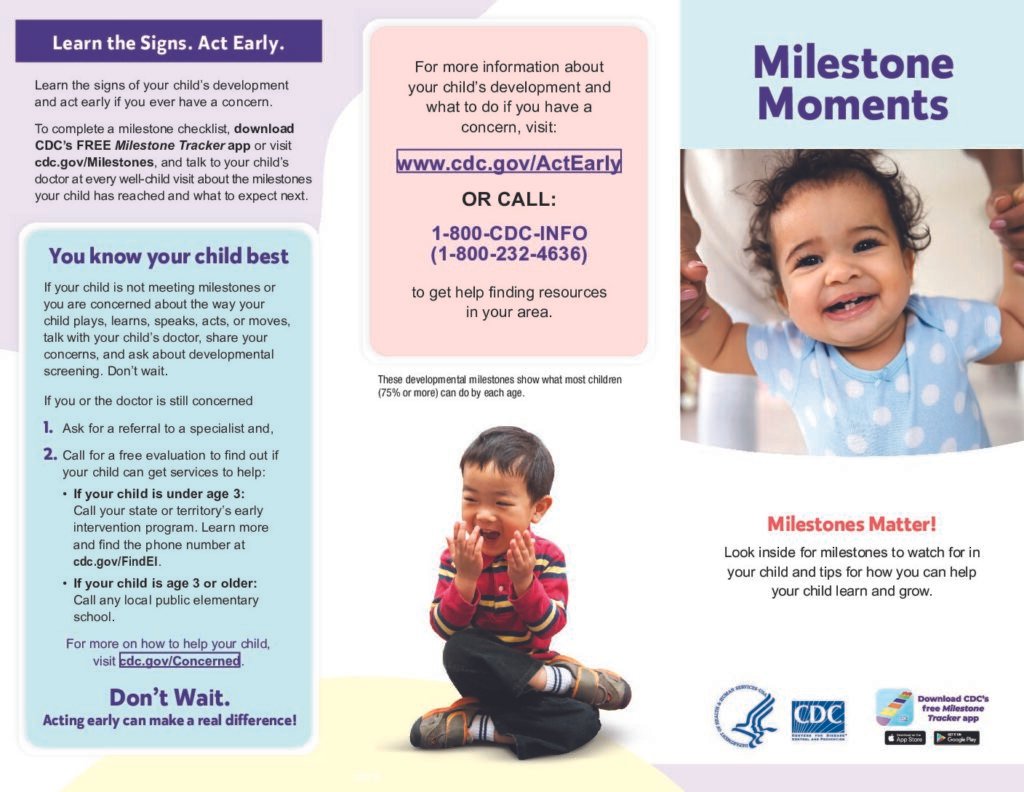A Parent’s Guide to Developmental Observations: From 3 to 12 Years
As a parent, you’re in the unique position of being your child’s first teacher and closest observer. Watching them grow, learn, and explore the world is a remarkable journey. Part of this journey involves noticing the incredible developmental milestones they achieve, from their first smile to their complex thoughts in later years.
While every child develops at their own pace, understanding typical developmental progression can help you celebrate their achievements and, importantly, recognize when they might need extra support. This guide is designed to help you know what to look for at various stages from 3 to 12 years, with a special eye towards early indicators that could be associated with common developmental diagnoses. Remember, this information is for guidance; if you have any concerns, always trust your instincts and consult with your child’s healthcare provider.
Preschool Power: Growing and Preparing (3-5 Years)

Preschoolers are becoming more independent, and their cognitive and social skills are blossoming. They’re learning about the world at an astonishing rate, developing more complex social skills, language, and problem-solving abilities.
What You Might Notice by 3 Years:
- Socially & Emotionally: They’ll copy adults and friends, take turns in games, and show concern for crying friends.
- Language & Communication: They can follow 2-3 step instructions, name most familiar things, and talk well enough for strangers to understand most of the time.
- Learning & Thinking (Cognitive): Expect them to play make-believe and do puzzles with 3-4 pieces.
- Movement & Physical Development: They’ll climb well, run easily, and pedal a tricycle.
Potential Checkpoints to Discuss with Your Doctor (by 3 Years):
- ADHD (early signs): Notice if they’re extremely restless and overactive compared to peers, or have difficulty engaging in quiet play.
- ASD Indicators: They might avoid eye contact, have trouble interacting with other children, or use repetitive actions or speech.
- Speech/Language Delays: Their speech might be consistently difficult for strangers to understand, or they might not be using sentences.
- General Developmental Concerns (could relate to Intellectual Disability or Other Developmental Delay): Look for trouble with simple self-care, like dressing.
What You Might Notice by 4 Years:
- Socially & Emotionally: They’ll enjoy new things, be more creative with make-believe play, and prefer playing with other children over playing alone. They’ll start to cooperate with other kids.
- Language & Communication: They’ll know basic grammar rules (like using “he” and “she” correctly), sing songs or say poems from memory, tell stories, and know their first and last name.
- Learning & Thinking (Cognitive): They can name some colors and numbers, understand the idea of counting and the concept of “same” and “different,” remember parts of a story, and draw a person with 2-4 body parts.
- Movement & Physical Development: They’ll hop and stand on one foot for up to 2 seconds, catch a bounced ball most of the time, and be able to pour, cut with supervision, and mash their own food.
Potential Checkpoints to Discuss with Your Doctor (by 4 Years):
- ADHD Indicators: They might have trouble sitting still for stories or group activities, or flit from one activity to another frequently.
- ASD Indicators: They may not be interested in interactive games or make-believe play.
- Speech/Language Delays: They might not use sentences with four or more words, or their speech could still be very unclear.
- Specific Learning Disabilities (early signs for Dyslexia/Dysgraphia): Look for trouble learning the alphabet, rhyming, or connecting letters to sounds. Their drawing or attempts at writing might be very messy.
- Intellectual Disability/Global Developmental Delay: They may not understand simple commands or questions.
What You Might Notice by 5 Years:
- Socially & Emotionally: They’ll want to please friends and be like them, be more likely to agree with rules, and enjoy singing, dancing, and acting. They’ll be aware of gender and can tell what’s real from make-believe.
- Language & Communication: They’ll speak very clearly, tell a simple story using full sentences, use future tense (e.g., “Grandma will be here”), and be able to say their name and address.
- Learning & Thinking (Cognitive): They can count 10 or more things, draw a person with at least 6 body parts, print some letters or numbers, copy triangles and other geometric shapes, and know about everyday things like money and food.
- Movement & Physical Development: They can stand on one foot for 10 seconds or longer, hop, and might even skip. They can do a somersault, use a fork and spoon (and sometimes a table knife), use the toilet on their own, swing, and climb.
Potential Checkpoints to Discuss with Your Doctor (by 5 Years):
- ADHD Indicators: They’re easily distracted, have trouble concentrating on an activity for more than 5 minutes, or have trouble following directions.
- ASD Indicators: They don’t show a wide range of emotions, exhibit unusual or repetitive behaviors, or don’t respond to people (or respond only superficially).
- Specific Learning Disabilities (Dyslexia, Dysgraphia, Dyscalculia): Look for trouble learning letters and numbers, difficulty holding a crayon or pencil, or trouble with basic counting.
- Speech/Language Delays: They might not use sentences with many details or tell stories that stay on topic.
Early School Years: Expanding Horizons (6-8 Years)
As children enter school, their world expands dramatically. They are learning to read, write, do more complex math, and navigate more intricate social situations.
What You Might Notice:
- Socially & Emotionally: They’ll show more independence from parents and family, start to think about the future, understand more about their place in the world, and pay more attention to friendships and teamwork. They’ll want to be liked and accepted by friends.
- Language & Communication: They’ll understand and use thousands of words, speak in complex sentences, read age-appropriate books, write simple stories, and understand jokes and sarcasm.
- Learning & Thinking (Cognitive): They’ll start to understand concepts like cause and effect and more complex patterns. Their attention spans will develop, and they’ll begin to understand other people’s perspectives. They can tell time and know days of the week, months, and year.
- Movement & Physical Development: They’ll have well-developed gross motor skills (running, jumping, climbing) and refine their fine motor skills (writing more neatly, tying shoelaces, using scissors well).
Potential Checkpoints to Discuss with Your Doctor:
- ADHD: Significant difficulty paying attention in class, completing schoolwork, or staying organized. They might be often forgetful or lose things, or be very fidgety or impulsive.
- Specific Learning Disabilities:
- Dyslexia: Significant trouble learning to read; slow, effortful reading; poor spelling; difficulty understanding what’s read.
- Dysgraphia: Very messy or slow handwriting, trouble forming letters, difficulty putting thoughts into writing, and many spelling/grammar errors.
- Dyscalculia: Trouble understanding basic math concepts, recalling math facts, or solving simple math problems.
- ASD: Difficulty making or keeping friends, struggles with conversational give-and-take, very narrow or intense interests, or rigid adherence to routines.
- Speech/Language Disorders: Difficulty understanding complex instructions or stories, trouble expressing thoughts clearly, or persistent articulation errors.
- Intellectual Disability: Significant difficulties learning academic skills compared to peers, or trouble with problem-solving and understanding social rules.
- Vision/Hearing Impairment: Squinting, holding books very close, complaining of blurry vision; or frequently asking “what?”, misunderstanding speech, or needing things repeated.
- Seizure Disorders: New onset of staring spells, unexplained confusion, or jerking movements.
Middle Childhood & Preteen Years: Growing Independence (9-12 Years)
During these years, children become more independent, develop stronger friendships, and engage in more complex thinking and problem-solving. Puberty may also begin during this stage.
What You Might Notice:
- Socially & Emotionally: They’ll value friendships and peer groups more, experience more complex emotions and mood swings, and develop a stronger sense of self and identity. They may also start to question authority and test limits.
- Language & Communication: They’ll understand and use complex vocabulary and grammar, engage in debates and justify opinions, understand abstract language, sarcasm, and idioms, and write well-structured essays and reports.
- Learning & Thinking (Cognitive): They’ll think more logically and abstractly, plan and organize tasks more effectively, understand different perspectives on issues, and develop specific interests and talents.
- Movement & Physical Development: They’ll have well-developed coordination and motor skills, and may experience growth spurts associated with puberty.
Potential Checkpoints to Discuss with Your Doctor:
- ADHD: Ongoing difficulties with attention, organization, and impulsivity that affect schoolwork and social relationships.
- Specific Learning Disabilities: Persistent struggles in reading, writing, or math despite support, or avoidance of academic tasks.
- ASD: Continued challenges with social nuances, making friends, or understanding complex social situations. Intense, narrow interests may persist.
- Anxiety/Mood Issues: (While not a primary focus here, these can co-occur or emerge) Significant changes in mood, withdrawal, or excessive worry that impacts daily life.
Trust Your Instincts: When to Seek Guidance
This guide offers general observations, but it’s important to remember that development isn’t a race. However, if you have any concerns about your child’s development, if they consistently miss milestones, or if they show signs that worry you (especially those highlighted in the “Potential Checkpoints” sections), it’s always best to talk to your child’s pediatrician or a healthcare professional.

Early identification and intervention are crucial for children who may have developmental disabilities. Services such as speech therapy, occupational therapy, physical therapy, behavioral therapies, and specialized educational support can make a world of difference in helping your child reach their full potential.
For specific concerns:
- ADHD: If you notice persistent inattention, hyperactivity, or impulsivity.
- Specific Learning Disabilities (Dyslexia, Dysgraphia, Dyscalculia): If your school-aged child has ongoing, significant trouble with reading, writing, or math.
- Autism Spectrum Disorder: If you see challenges in social communication, interaction, or repetitive behaviors.
- Speech or Language Disorders: If your child has trouble understanding, speaking, or being understood.
- Intellectual Disability: If there are significant delays across multiple areas of development.
- Vision or Hearing Concerns: If your child doesn’t seem to see or hear well.
- Motor Delays (could indicate Cerebral Palsy or other issues): If there are delays in sitting, crawling, walking, or issues with muscle tone.
- Seizures: If your child experiences staring spells, jerking movements, loss of consciousness, or other unusual, sudden episodes.
Bright Steps Forward
Understanding developmental milestones is a powerful tool for parents. It helps you celebrate your child’s achievements and provides a framework for observing their growth. Remember, you are your child’s best advocate. Trust your instincts, and don’t hesitate to seek professional advice if you have concerns. With love, support, and the right resources, every child can take bright steps forward on their unique developmental path.
(Disclaimer: This article is for informational purposes only and does not constitute medical advice. Always consult with a qualified healthcare professional for any concerns about your child’s health or development.)


